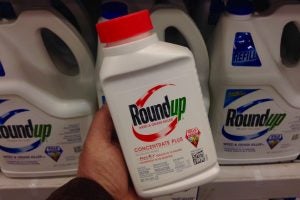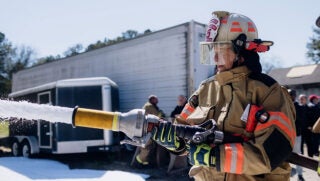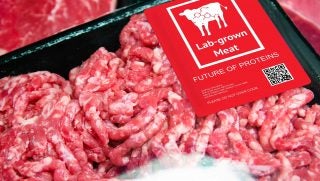A man who claimed to have used more than 500 gallons of Roundup between 1989 and 2014 for lawn and garden use before developing non-Hodgkin’s lymphoma won a $175 million verdict against Monsanto, the original maker of the weedkiller. The three-week jury trial in Philadelphia Common Pleas Court was intended to consider whether glyphosate, the active ingredient in Roundup, is carcinogenic when in the presence of other compounds.
“It’s a tremendous result. This case has always been about the science, and this new verdict puts a huge exclamation point on that fact,” said R. Brent Wisner, a Wisner Baum who has tried Roundup cases before. “It’s about time for Monsanto to finally, once and for all, pull this product off the market and negotiate a global settlement. It’s time to bring and end to the glyphosate chapter in our country.”
Glyphosate, which has been around since the 1970s, is the active ingredient in Roundup and other products, such as Ranger Pro, and it is often targeted by activists speaking out against modern agricultural practices. According to Bloomberg Law, Bayer’s lawyers have long argued that numerous studies have shown Roundup is safe, and the U.S. Environmental Protection Agency has concluded that glyphosate is not a carcinogen.
Independently, nearly all scientific bodies and associated research have affirmed the safety of glyphosate.
There are, however, more than 30,000 outstanding glyphosate-related claims, and Bayer has allocated about $16 billion for their settlements.

Bayer, in a statement emailed to The Philadelphia Enquirerer, vowed to appeal Friday’s verdict.
“We respectfully disagree with the jury’s divided verdict and are confident we can get this unfounded verdict overturned and the excessive damage awards reduced through our appeal, given that there were significant and reversible legal and evidentiary errors made during this trial,” Bayer said.
“We have a winning record in the Roundup litigation — having won nine of the last 11 cases at trial — and have resolved the majority of claims filed in this litigation,” Bayer said.
At the center of the Philadelphia case was Ernest Caranci, who is undergoing treatment for cancer and said he never used protective equipment while using Roundup because he said Monsanto never told him to.
Roundup is the most common weedkiller in the U.S. and often hailed as one of the safest herbicides available. Most of the litigation against Monsanto and Bayer in recent years have relied largely on emotional testimony rather than scientific findings, much to the frustration of many in the agricultural sector. (This type of litigation is civil, not criminal, so there is significantly lower standards of legal liability.)
Lawsuits over glyphosate and human health are usually rooted in the International Agency for Research on Cancer’s 2015 classification of glyphosate as a “probable” carcinogen. When IARC first made the decision, it was immediately controversial, and that controversy has been growing in the years since, not the least of which related to questionable editing of draft versions of the original report before they were made public.


